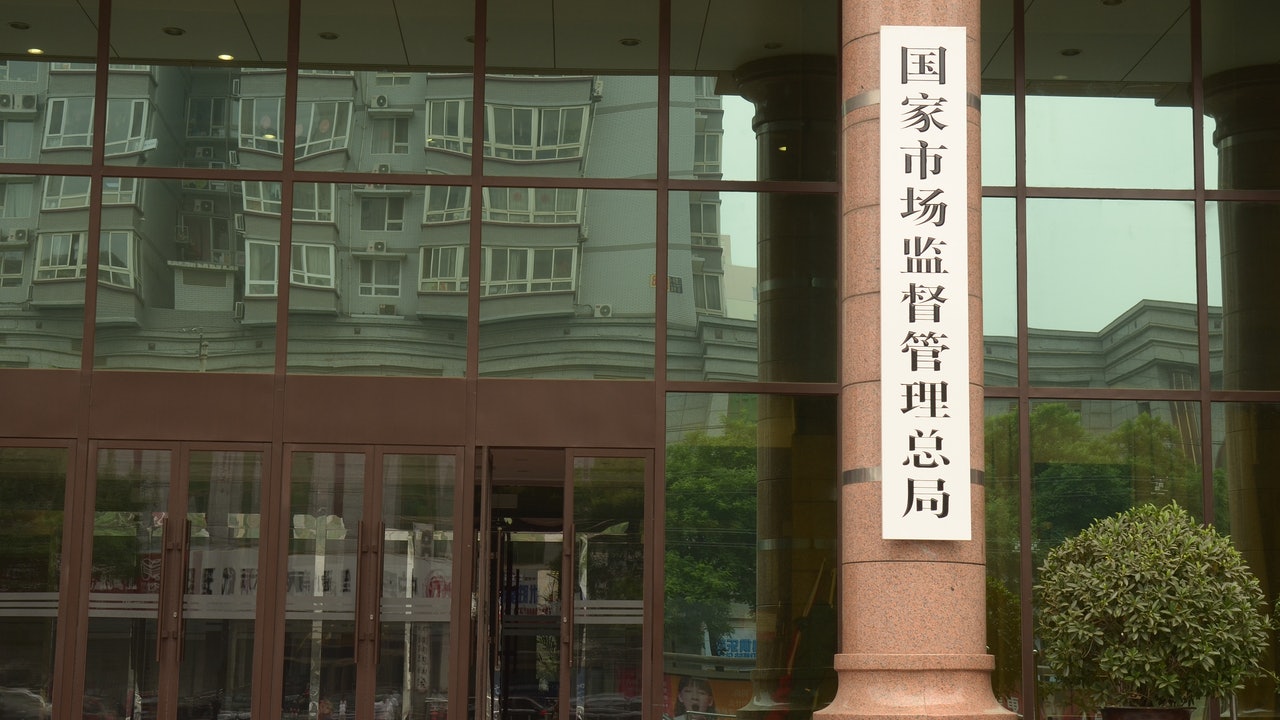This Monday (November 15), the State Council appointed Gan Lin, deputy director of the State Administration of Market Supervision and Administration, as the director of the State Anti-Monopoly Administration.
Gan Lin previously had three internal business organizations in charge of the Law Enforcement Inspection Bureau, the Anti-Monopoly Bureau, the Price Supervision and Inspection Bureau, and the Anti-Unfair Competition Bureau (Regulation of Direct Selling and MLM Office) in the General Administration of Supervision. Judging from the prefix “country”, and the official website updated its job title to “preside over the work of the National Anti-Monopoly Bureau”, it is sufficient to judge that it should not be the anti-monopoly bureau set up by the State Administration of Supervision in the past, and it may mean that it is in charge of anti-monopoly law enforcement. The working organization is about to be upgraded.
Gan Lin has now joined the three new internal agencies in charge of the Competition Policy Coordination Department, the Anti-Monopoly Enforcement Department I and the Anti-Monopoly Enforcement Department II. In addition, this appointment announcement coincides with the 7th BRICS International Competition held in Chengdu, Sichuan. At the conference, the agenda of the meeting can see that Wu Zhenguo, the former director of the Anti-monopoly Bureau of the Municipal Supervision Bureau, has also been changed to the director of the Anti-monopoly Law Enforcement Department.
Since the names of the aforementioned three new divisions have never appeared in the agency sequence of the Municipal Supervision Administration in the past, the Municipal Supervision Administration announced last month that it will recruit as many as 18 examinations under the "Anti-Monopoly Bureau" in 2022. The position of the business department, so there are opinions that they may be under the expanded establishment of the National Anti-Monopoly Bureau.
Resolute supervision in the Mainland
The "Fourteenth Five-Year Plan" released in March this year has a special section on "Strengthening the Basic Position of Competition", which proposes to "increase the anti-monopoly and anti-unfair competition enforcement and judicial efforts to prevent the disorderly expansion of capital."
As of August, the Central Committee for Comprehensive Deepening Reform passed the "Opinions on Strengthening Anti-monopoly and Deepening the Implementation of Fair Competition Policies," and also reiterated the need to "improve the anti-monopoly system and mechanism" and "enrich the anti-monopoly supervision force."
In the past year, the authorities have in fact imposed major punishments on giant companies such as Alibaba, Tencent, Alibaba, and Didi Chuxing. Recently, they have consulted on the first draft amendment to the Anti-Monopoly Law of the People’s Republic of China. One change includes a substantial increase in the maximum fines imposed by anti-monopoly law enforcement agencies.
The State Administration for Market Regulation issued an announcement that three companies including Alibaba, Wenwen and Shenzhen Fengchao Network were fined 500,000 yuan each for violating China's Anti-Monopoly Law.
(Profile picture)
Since the institutional reform in 2018, the General Administration of Supervision has been an agency of the State Council that is responsible for the unified enforcement of anti-monopoly law, and the bureau’s earlier recommendations to the representatives of the National People’s Congress will "actively cooperate with the Central Reform Office and the Central Office to enrich and strengthen The anti-monopoly supervision and law enforcement power strengthens the authority of supervision."
Zhang Gong, director of the Municipal Supervision Bureau, said that after 2018, the bureau has investigated and dealt with a total of 345 monopoly cases, 37,000 unfair competition cases, 118,000 price violation cases, and concluded 1,920 cases of concentration of business operators, and has facilitated a number of amendments to laws and regulations. And policy documents are released.
Although the State Anti-Monopoly Bureau still seems to have not broken away from the Municipal Supervision Bureau system at this stage, as its level upgrades and scale expands, it is not difficult to expect that its supervision and enforcement power will be further improved.
Hong Kong's weak law enforcement powers
On the other hand, although there is a similar competition committee in Hong Kong, the committee has handled about 5,000 complaints and inquiries since December 2015 when the Competition Ordinance came into full force. Among them, the only cases that decided to make preliminary assessments or investigations were There were 258 cases, and only seven cases were finally decided to be filed with the Competition Tribunal.
Moreover, there are obvious gaps in the powers conferred by the Competition Commission by the Competition Ordinance. For example, the "Merger Code" is limited to the regulation of telecommunications companies that hold carrier licenses. Even Hu Hongyu once admitted that the Commission lacks compulsory evidence search powers when he was chairman. It can be seen that the lack of law enforcement power has greatly restricted the Commission’s anti-monopoly work.
Hu Hongyu was given a special issue documenting her work in the Competition Committee.
(Photo by Zheng Zifeng)
It is particularly worth noting that as of March 2021, the Hong Kong Competition Commission has 64 staff members other than 14 members. The Anti-Monopoly Bureau within the General Administration reportedly has only 41 staff with 1 director and 3 deputy directors. Even if the total number of 18 newly hired in the coming year is still less than the competition committee, it is still in view of the workload and law enforcement. In terms of efficiency, there is undoubtedly a great distance between the two.
This gap shows that staffing and resource allocation do not necessarily affect the effectiveness of anti-monopoly work. I am afraid that it depends on whether the original legislation can demonstrate determination and give law enforcement agencies sufficient power to supervise and punish.
Anti-monopoly policies in the Mainland are changing the market ecology Will Uber’s acquisition of HKTaxi weaken competition?
Monopolistic economic structure is detrimental to social development

